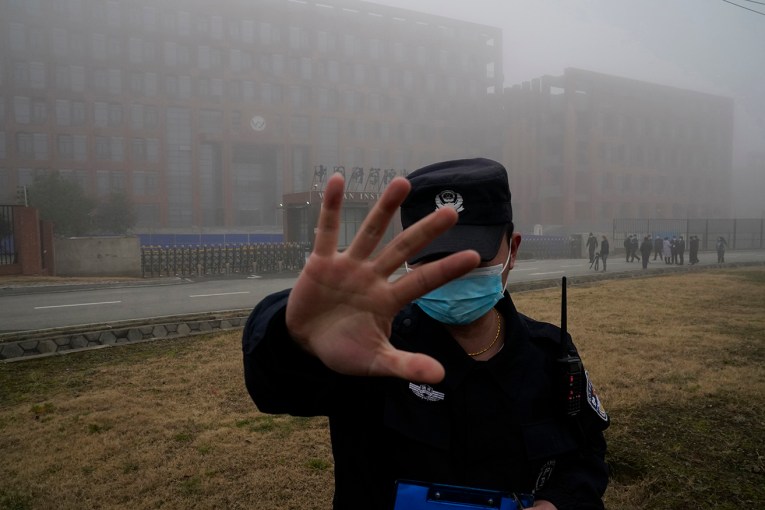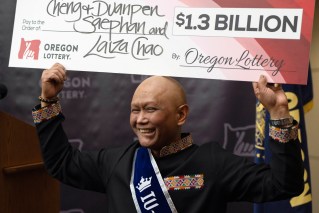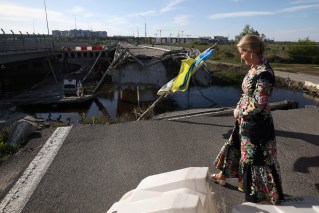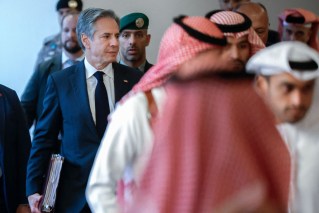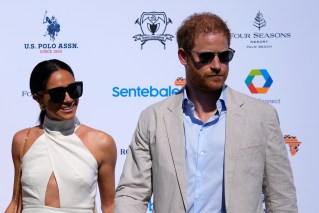Protest or publicity stunt? French politician refuses to wear headscarf
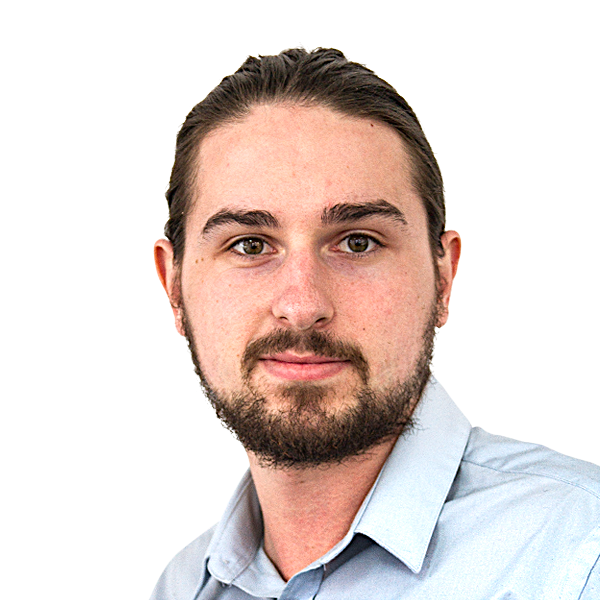
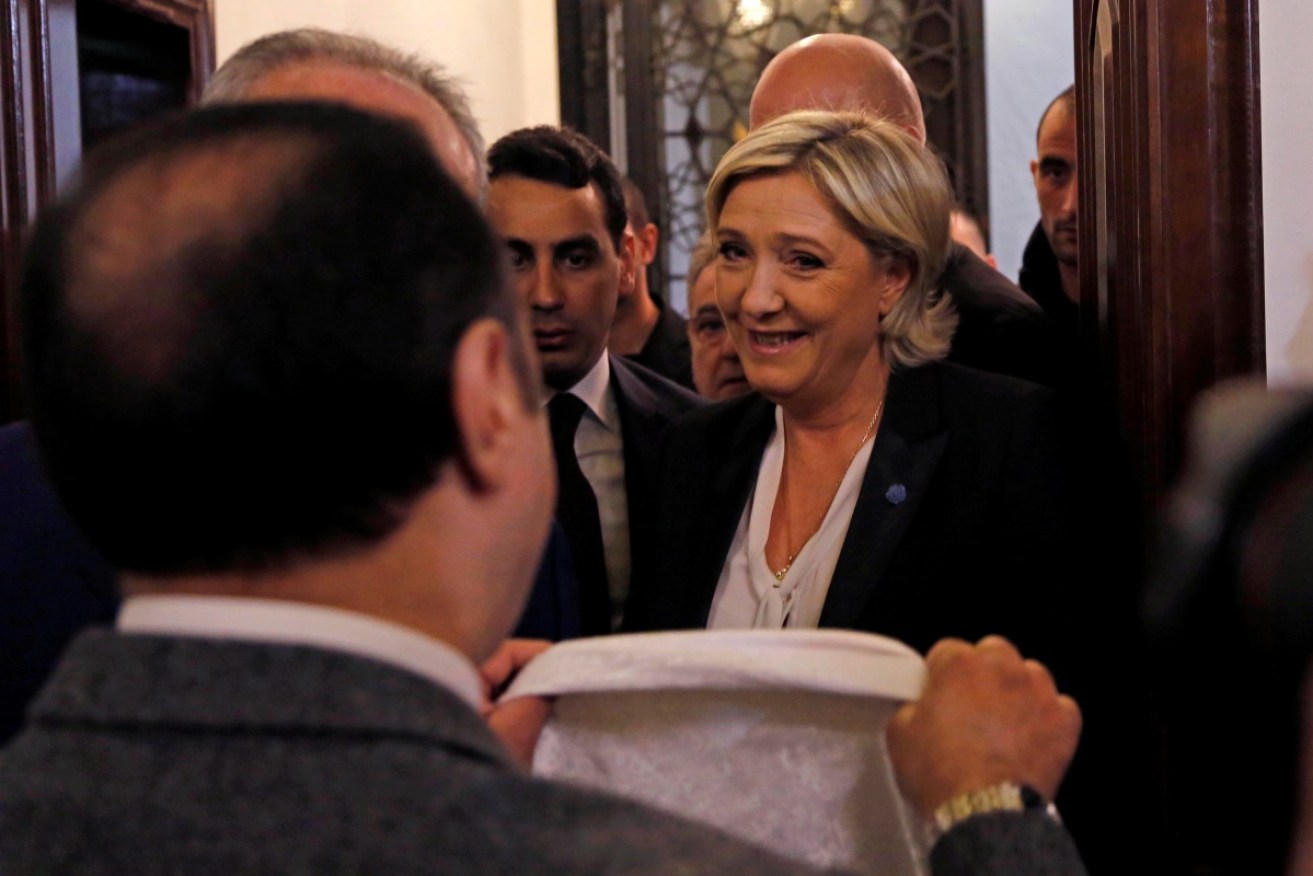
Far-right politician Marine Le Pen refused to wear a headscarf before meeting Lebanon's grand mufti. Photo: Getty
French politician Marine Le Pen has refused to wear a headscarf during a meeting with Lebanon’s grand mufti, but the authenticity of her protest has been brought into question.
The presidential candidate for France’s far-right National Front party was on a two-day tour of Lebanon in hopes of securing Franco-Lebanese votes ahead of April’s election.
But while Ms Le Pen told reporters she was baffled by the requirement, a spokesman for Grand Mufti Sheikh Abdul Latif Derian has revealed she was informed before the meeting that she had to wear the head covering.
When questioned why she would not cover up, Ms Le Pen took a hardline stance against the headscarf, calling it a “symbol of a woman’s submission”.
“I will not put on the veil,” she proclaimed.
“You can pass on my respects to the grand mufti, but I will not cover myself up.”
Ms Le Pen compared her refusal to that of former First Lady Michelle Obama, who declined to wear one during her state visit to Saudi Arabia.
“I note that when Marine Le Pen refuses to don the headscarf, it is criticised, but when Michelle Obama refused to do it in Saudi Arabia, it was considered admirable,” she said.
Ms Le Pen also referenced a 2015 trip to Egypt where she didn’t wear a headscarf to meet the Grand Imam of al-Azhar.
“I met the Grand Mufti of Al-Azhar … The highest Sunni authority didn’t have this requirement, but it doesn’t matter,” she said.
However, the office of Lebanon’s mufti issued a statement saying that she was told in advance through one of her aides that she would have to put on a headscarf during the meeting.
“This is the protocol,” the statement said.
“The mufti’s office regrets this inappropriate behaviour in such meetings.”

Marine Le Pen during her press conference on Tuesday. Photo: AAP
Florian Philippot, the deputy leader of France, fuelled speculation the row was a publicity stunt when he tweeted: “In Lebanon, Marine refuses to wear a veil. A magnificent message of freedom and emancipation sent to the women of France and of the world.”
French law already bans headscarves in all classrooms, and Ms Le Pen has proposed upgrading the ban of the headwear and other “ostentatious” religious symbols to all public places.
In nearby Germany this week, the state of Bavaria moved to ban full-face veils in schools, universities, government workplaces and polling stations, as Bavarian conservatives move to stem the flow of votes to the anti-immigrant Alternative for Germany.
Who is Marine Le Pen?
Ms Le Pen, 48, is the leader of far-right political party National Front in France, and has a significant chance of winning the April 23 election.
According to Politico, Ms Le Pen is leading the latest polls with 27 per cent of the vote – with former economy minister Emmanuel Macron and ex-prime minister François Fillon, the conservative frontrunner, unchanged at 20 per cent each.

Ms Le Pen and father Jean-Marie Le Pen. Photo: Getty
Ms Le Pen was born into the National Front party as the youngest daughter of long-time president Jean-Marie Le Pen. She replaced her father as president in 2011.
However she’s often described as more democratic than her nationalist father, and has relaxed positions on same-sex relationships, unconditional abortion and the death penalty.
This will be the second presidential election Ms Le Pen will contest, after losing the 2012 race with 17 per cent of the vote, behind current President François Hollande and Nicolas Sarkozy.
Ms Le Pen was ranked among the 100 most influential people in 2011 and 2015 by TIME magazine.
